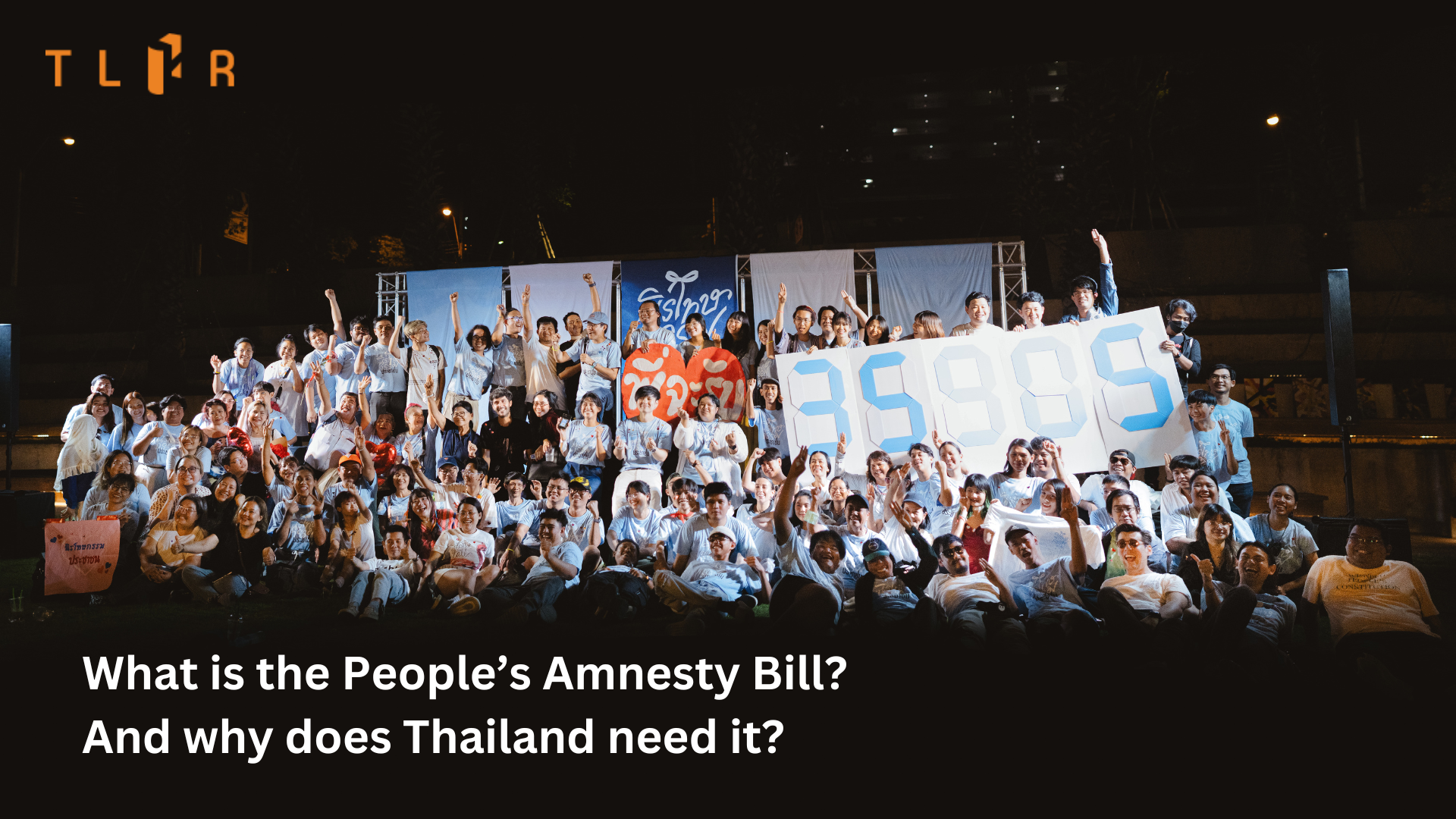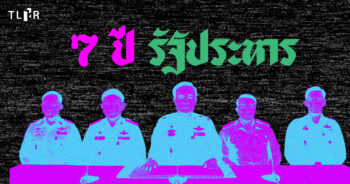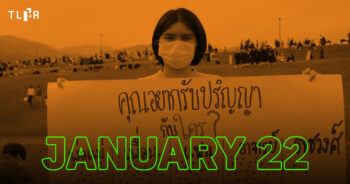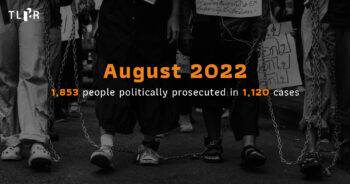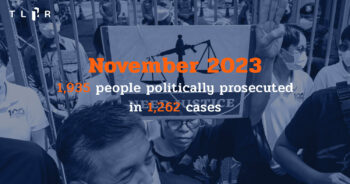The current state of human rights in Thailand remains grim. Since Thailand’s 2006 coup, at least 5,027 individuals have been prosecuted for exercising their rights to freedom of expression and peaceful assembly. Almost a third of these prosecutions occurred between 18 July 2020 and 31 January 2024, during which at least 1,947 individuals were politically prosecuted in 1,268 cases for crimes resulting from the exercise of their fundamental freedoms. This includes 216 cases involving 286 children under the age of 18. Presently, two individuals remain in detention under Thailand’s lèse-majesté law — which criminalizes defamation or insults of the Thai monarchy with a penalty of 3 to 15 years’ imprisonment — for actions allegedly committed when they were children.
Despite the shift in government to Prime Minister Mr. Srettha Thavisin of the Pheu Thai Party in September 2023 after the Move Forward Party candidate Mr. Pita Limjaroenrat was blocked by the military-appointed Senate from securing the position, new charges continue to be brought against pro-democracy activists and human rights defenders. Political prosecution continues in more than 800 ongoing cases.
| Charges Between Sept. 2023 and Jan. 2024 | No. of Individuals | No. of Cases |
| Charges against individuals with no prior records | 22 | 27 |
| Lèse-Majesté | 6 | 10 |
| Sedition | 17 | 4 |
| Public Assembly Act | 16 | 7 |
| Computer Crimes Act | 13 | 11 |
Between September and January 2024, the court issued verdicts in 51 lèse-majesté cases with a total of 41 of these cases, equivalent to 80%, resulting in a prison sentence. Of the 67 individuals detained on political charges in 2023, at least 34 were prosecuted under the lèse-majesté law. No fewer than 40 individuals remain in detention as of 21 February 2024.
If Thailand is to move towards a future in which human rights are protected, amnesty must be granted to the at least 5,027 victims of political prosecution in Thailand. The People’s Amnesty Bill is a clear way forward that will begin to address Thailand’s grim human rights record, and the only way forward that will allow for political reconciliation among Thailand’s divided political factions. Especially considering Thailand’s candidature for membership of the UN Human Rights Council for the 2025-2027 term, the election for which will take place in October 2024, the time for Thailand to respect human rights and address past human rights violations against pro-democracy activists and human rights defenders is now.
What is the People’s Amnesty Bill?
The Network for People’s Amnesty — consisting of more than 20 civil society organizations, of which Thai Lawyers for Human Rights is one — believes it is imperative for the Thai government to grant amnesty to victims of political prosecution for crimes resulting from the exercise of their rights to freedom of expression and peaceful assembly. The Network therefore drafted the Draft Amnesty for People Act B.E. … (“Amnesty Bill”) and collected signatures from eligible voters between 1 and 14 February 2024 for a petition to introduce the Bill into the Parliament.
The petition received over three times the required number of signatures pursuant to Section 133(3) of the Constitution of the Kingdom of Thailand B.E. 2560 (2017), totaling 35,905 signatures. On the evening of 14 February 2024, the Network for People’s Amnesty gathered at the People’s Square beside the Parliament complex to hand over the list of signatures to representatives from three political parties, including to Pheu Thai Party MP Ms. Khattiya Sawatdiphol, Move Forward Party MP and leader Mr. Chaithawat Tulathon, and Fair Party MP Mr. Kannavee Suebsang.
The People’s Amnesty Bill is the fourth amnesty bill that will be considered by the Parliament this year, alongside three other amnesty bills previously proposed by the Move Forward Party, the United Thai Nation Party, and the Thai Teachers for People Party.
What time period would the People’s Amnesty Bill cover?
The People’s Amnesty Bill would cover the period from the 19 September 2006 coup until the Bill enters into force, addressing the political conflicts that exist in Thailand today at their roots. Since the 2006 coup, many political movements and events have shaped Thailand’s modern political history and are included in the Bill’s covered time period:
Throughout Thailand’s tumultuous political history since 19 September 2006, no fewer than 5,027 pro-democracy activists and human rights defenders have been subjected to criminal prosecution in connection with their political activities. After the 2014 coup, approximately 2,400 civilians were tried in military court.
Most recently, between 18 July 2020 and 31 January 2024, at least 1,947 individuals — no fewer than 286 of whom are children under the age of 18 — have been charged under various repressive laws in 1,268 cases. Some of the charges include, but are not limited to:
Who would benefit from this Amnesty Bill? What offenses would be granted amnesty?
The People’s Amnesty Bill would grant amnesty to individuals who have been charged with the following offenses:
1) cases related to the violation of the Announcements and Orders issued by the National Council for Peace and Order (NCPO) or the Orders issued by the Head of the National Council for Peace and Order (NCPO);
2) cases against civilians and tried in the Military Court pursuant to the Announcement of the National Council for Peace (NCPO) no. 37/57 and the Announcement of the National Council for Peace (NCPO) no. 38/57;
3) cases related to the violation of Section 112 (lèse-majesté) of the Criminal Code;
4) cases related to the violation of the Public Administration in Emergency Situations B.E. 2548;
5) cases related to the violation of the Organic Act on Referendum for the Draft Constitution B.E. 2559; and
6) cases related to the offenses under (1) to (5).
The People’s Amnesty Bill is the only amnesty bill that specifically enumerates a list of offenses for which amnesty would be automatically granted. In particular, it would guarantee amnesty in Section 112 (lèse-majesté) cases.
In contrast, the bills from the United Thai Nation Party and the Thai Teachers for People Party would prohibit amnesty from being granted in Section 112 (lèse-majesté) cases. Under Move Forward’s bill, a committee would be established to decide whether amnesty should be granted on a case-by-case basis.
Since the 2014 coup, at least 399 individuals have been prosecuted under Section 112 (lèse-majesté). The year 2021 witnessed the highest number of individuals prosecuted in lèse-majesté cases since the 2014 coup (at least 145), many of whose trials remain ongoing in 2024.
A record-breaking 50-year prison sentence was recently imposed on Mr. Mongkhon Thirakot on 18 January 2024 for publishing 25 Facebook posts about the monarchy. Consequently, the use of the lèse-majesté law remains an ongoing threat often used against pro-democracy activists and human rights defenders for exercising their right to freedom of expression.
In addition to lèse-majesté cases, the People’s Amnesty Bill would grant amnesty to individuals whose offenses are related to a political assembly or expression, or individuals who have not participated in a political assembly, but have committed acts motivated by or in relation to political conflicts. The Committee of Amnesty for the People would be established to determine whether individuals fall under these criteria.
The Committee would be composed of 20 members, including the Speaker of the House of Representatives as Chair, the Opposition Leader, the Speaker of the Coalition Whip, the Speaker of the Opposition Whip, and ten Members of the House of Representatives recruited among themselves based proportionally on the party’s seats in the House of Representatives.
The Committee would also include 2 representatives from civil society organizations involved in fact-finding activities and the facilitation of justice, and one representative politically prosecuted in relation to each of the following major political movements and events (4 representatives total):
- The 2006 military coup, and the protests by the People’s Alliance for Democracy against then-Prime Minister Thaksin Shinawatra before the coup (at least 195 individuals in 9 cases);
- The public assemblies by the United Front of Democracy Against Dictatorship (Red Shirt) during the period 2009-2010 (at least 1,763 individuals in 1,381 cases);
- The 2014 military coup, trials in the military court (at least 2,408 individuals in 1,886 military court cases), and political cases under the NCPO regime during the period 2014-2019; and
- The youth-led pro-democracy demonstrations during the period 2020-2023 (at least 1,947 individuals in 1,268 cases).
Who would not benefit from the People’s Amnesty Bill?
The People’s Amnesty Bill would notably not grant amnesty for any acts committed by government officials, including acts in relation to a public assembly or a public protest. As a result, any act committed by a government official at any stage of a protest determined to be excessive and deemed an offense under Section 113 of the Criminal Code would not be granted amnesty.
Rather than protect the fundamental freedoms of those exercising their rights to freedom of expression and peaceful assembly, granting amnesty to government officials who have widely engaged in violent tactics against protesters in the name of “dispersing” protests would send a message that government officials can behave how they want free from accountability. This would foster a state of impunity in contravention with democratic principles, and likely result in more demonstrations in opposition to the government.
In practice, what would the People’s Amnesty Bill do for victims of political prosecution?
Under the People’s Amnesty Bill, if an individual who committed an act eligible under the Bill has yet to be indicted or is still under investigation by the police, the inquiry official in charge of the investigation or the public prosecutor shall cease investigation or the indictment.
If an individual has already been indicted, the public prosecutor or any concerned agency shall withdraw the indictment.
If an individual is on trial, the court may proceed to dismiss or dispose of the case at the request of the individual or if the individual is deemed fit by the court.
If an individual’s case has already reached its final verdict and the individual has been convicted and sentenced before the Bill enters into force, it shall be deemed as if the individual has never been convicted of an offense.
If an individual is undergoing punishment, the imprisonment shall cease and the individual shall be released.
The Royal Thai Police would be required to erase the criminal records of any individual granted amnesty. The Committee would oversee this erasure and ensure that the Royal Thai Police proceed with the erasure accordingly.
Furthermore, in addition to ensuring the erasure of criminal records, the Committee would also be responsible for producing a report addressed to relevant state agencies that offers recommendations regarding remedy for individuals eligible for amnesty, and prevention of further conflict and human rights violations. This could potentially open the doors for reparation to be granted to individuals prosecuted in political cases since 2006 in the future.
